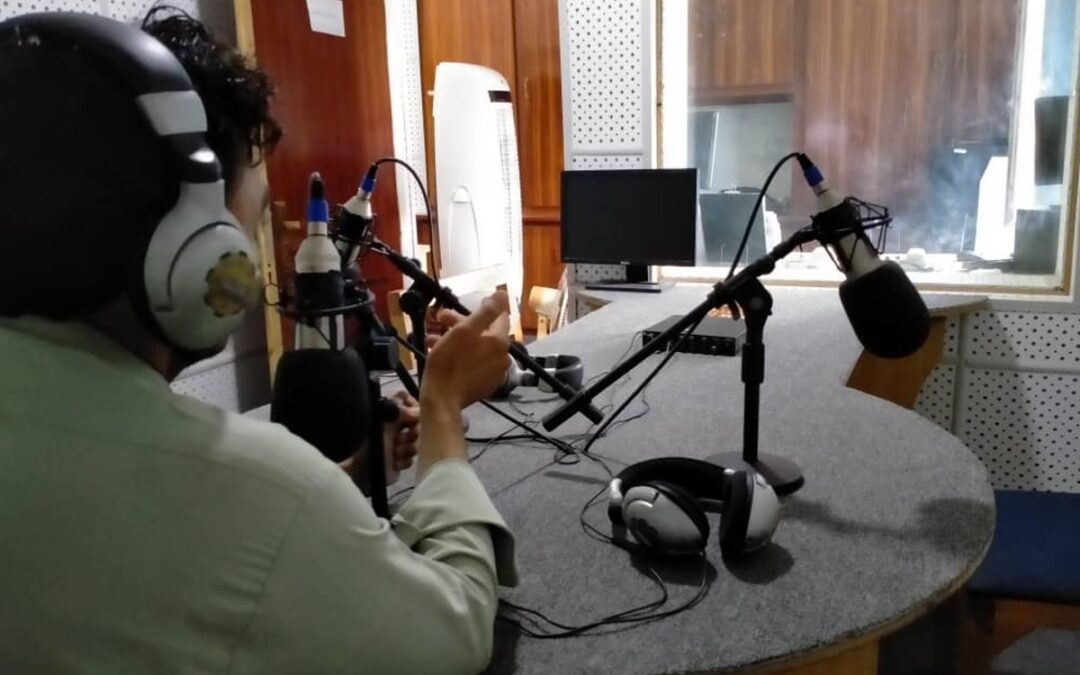The Taliban has issued a broadcasting ban on two US federal funded news outlets in Afghanistan on the grounds that they were violating local laws.
The ban on RFE/RL’s Afghanistan extension Azadi Radio and the Afghanistan division of Voice of America (VOA) went into effect on Thursday, December 1.
The Taliban’s ministry of information and culture said it had received complaints about programing content but gave no details.
In written comments to VOA, Abdul Qahar Balkhi, the Taliban’s foreign ministry spokesman, said: “Afghanistan has press laws and any network found repeatedly contravening these laws will have their privilege of reporting from and broadcasting within Afghanistan taken away.”
“VOA and Azadi Radio failed to adhere to these laws, were found as repeat offenders, failed to show professionalism and were therefore shut down,” Balkhi said.
VOA meanwhile stated that their organization and Azadi Radio operate with journalistic independence and aim to provide comprehensive, balanced coverage.
In a statement issued late Thursday, VOA said the takeover of its FM and medium wave (AM) transmitters by the Taliban, breaking a multiyear contract, “is a blow to the large audience that turns to Radio Ashna for uncensored news and information.
“VOA broadcasts provided the people of Afghanistan uncensored perspectives and hope. They gave ordinary Afghans a voice through call-in programs and discussion shows about subjects censored by domestic media.
“On VOA programs, topics ranged from the increasing isolation of Afghanistan’s current government and the second-class status of women and girls as a result of the Taliban’s policies to the persistent economic failures that have diminished the quality of life in Afghanistan since the Taliban takeover,” the statement read.
Acting VOA Director Yolanda López meanwhile stated that many programs were anchored by women.
“Removing VOA from the domestic airwaves will not silence us. It will only increase the importance of serving the captive audience inside Afghanistan,” she said.
VOA’s statement noted that it has other means of serving its large audience in Afghanistan, including a 24/7 TV satellite channel (Yahsat channel 469), short wave radio, a medium wave radio station in Tajikistan at 972 khz, and its digital platforms.
“We are actively exploring additional ways to provide our content and fulfill our mission of serving our audience in Afghanistan,” VOA stated.
Early last month, the Taliban also ordered the closure of two Afghan news websites – Hasht-e-Subh (8am) and Zawia Media, in what critics said was another sign of the Taliban’s continued suppression of the media in Afghanistan.
At the time, Reporters Without Borders (RSF) urged the Taliban to reverse the decision and allow the media to continue informing the Afghan people, as their basic human rights.
“In addition to the Taliban’s continuous restriction of the media, the closure of the websites of Hasht-e-Subh (8am) and Zawia Media, marks the start of a new phase in the Taliban’s war on media freedom,” RSF’s Iran-Afghanistan desk said.
“They have used violence and regulations to restrict and censor the media, but for the first time they have gone so far as to directly violate media freedom by closing the websites of two Afghan newspapers.”
In March this year, another order was issued banning privately-owned TV channels from retransmitting news programs provided by international broadcasters including BBC, Voice of America and Deutsche Welle.





